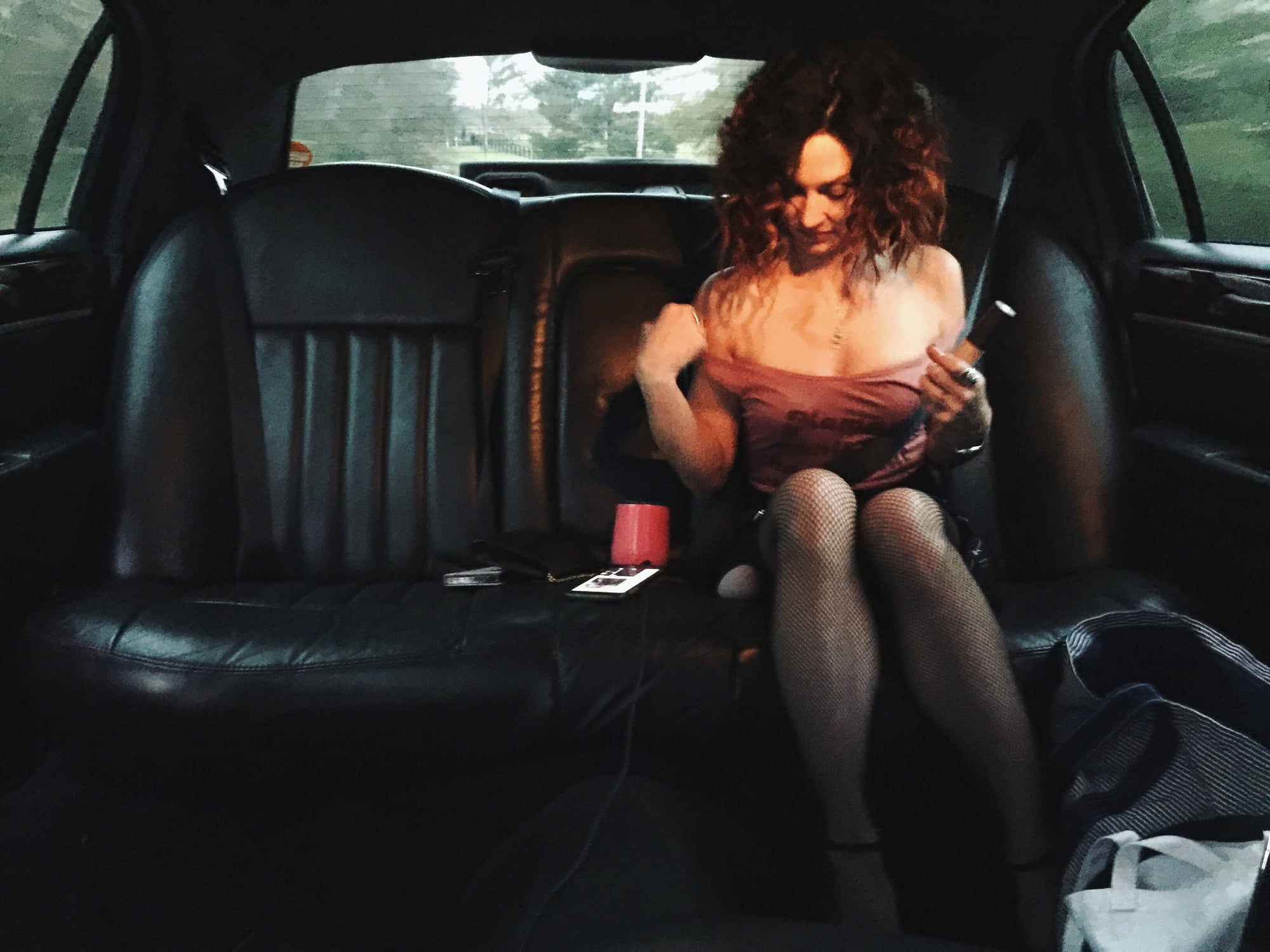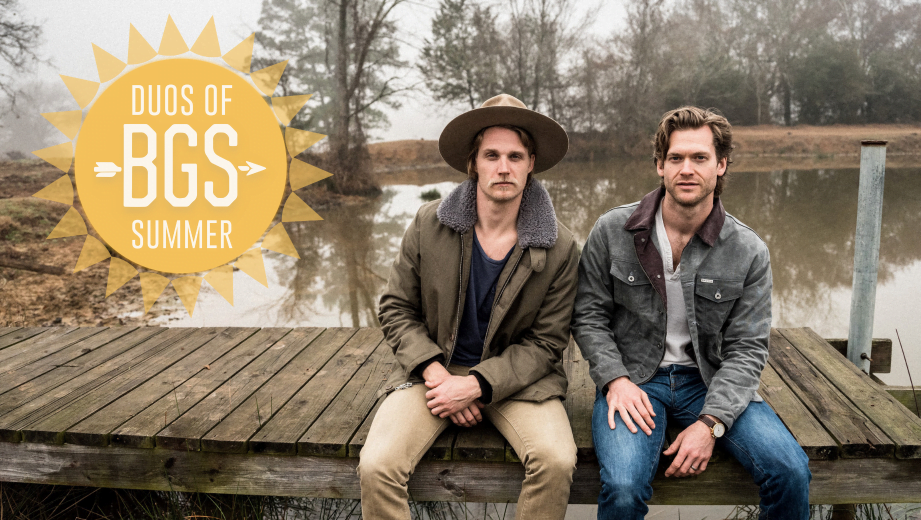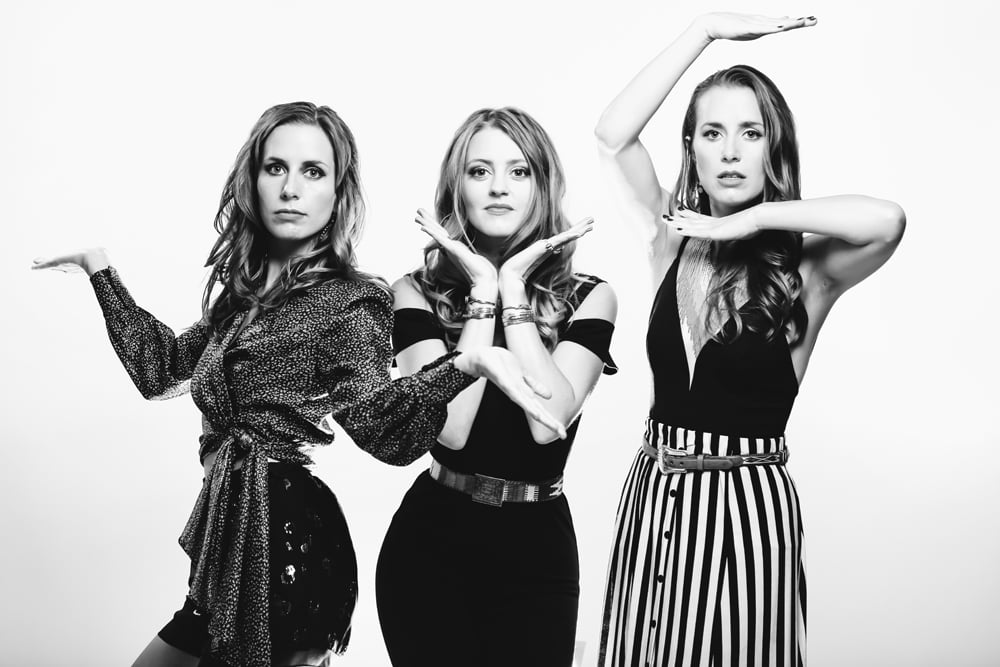The slogan tee has been around for a minute, but lately they have evolved from funny pop culture references — “My neck, my back, my Netflix, and my snacks” tee comes to mind — to thought-provoking and political statements. Some of my personal favorites include Third Man’s “Icky Trump” tee, Midnight Rider’s “Nasty Woman” tee, Rorey Carroll’s “DIY Choice” tee, and Amanda Shires’ “Nashville Sound” tee. They’ve even found a place in high-end fashion. Dior’s artistic director, Maria Grazia Chiuri, sent models down the runway wearing the titles of two different feminist texts, “Why Have There Been No Great Women Artists” and “We should all be feminists.”
Slogan tees are a portable billboard, allowing wearers to open up a dialogue about issues that are often ignored. So, whether this latest trend has you rolling your eyes or loading up your shopping cart, you can’t deny its success in sparking curiosity and conversations this past year.
Singer/Songwriter Amanda Shires knows how to get a message across and she did just that earlier this month at the 2017 CMA awards. Ditching the request for formal attire, Shires stood tall on the red carpet wearing heels, fishnets, a pencil skirt, and a mauve tank top with lyrics “Mama wants to change that Nashville sound” (from Jason Isbell’s “White Man’s World” off The Nashville Sound) printed across the front. These lyrics acknowledge the struggle female artists face in mainstream country music, and Shires felt there was no better place to display this message than at the CMA Awards.
In order to keep the conversation of gender inequality rolling, I sat down with Amanda and asked her a few questions.
Earlier this month you wore a tank top to the CMAs with Jason Isbell‘s lyric “Mama wants to change that Nashville sound.” Why do you feel those lyrics were important to wear to the CMAs?
I feel like it’s important because I feel like there’s room to let more women’s voices be heard and there’s not enough being done about it in the moment we’re in right now.
What is the change you would like to make in the “Nashville sound”?
I mean, ideally it would be equality — the number of female singers to male singers being played on the radio. A shorter distance in the earnings between the two sexes, but that would have to start higher up because the industry is still being run by old-ass white dudes, and you know it could use a lot more women, a lot more people of color, it could use a lot more as far as diversity goes.
I listened to the radio and, out of 28 songs, I heard two women voices and one of them happens to be in a band that also has male singers, and I feel like that’s a step, but there are a lot of steps to go from. Okay one of the problems, one of the defenses that country radio stations have is “There aren’t requests for female singers,” and that’s a weird cycle, a weird catch-22 because if there were more women being played, then the audience would have more women to choose from as far as requests goes, but as it is, you can really only name two if you’re just a general country listener. Whether or not it changes, I mean, TBD.
We have to try and speak up for one another and try to do it together.
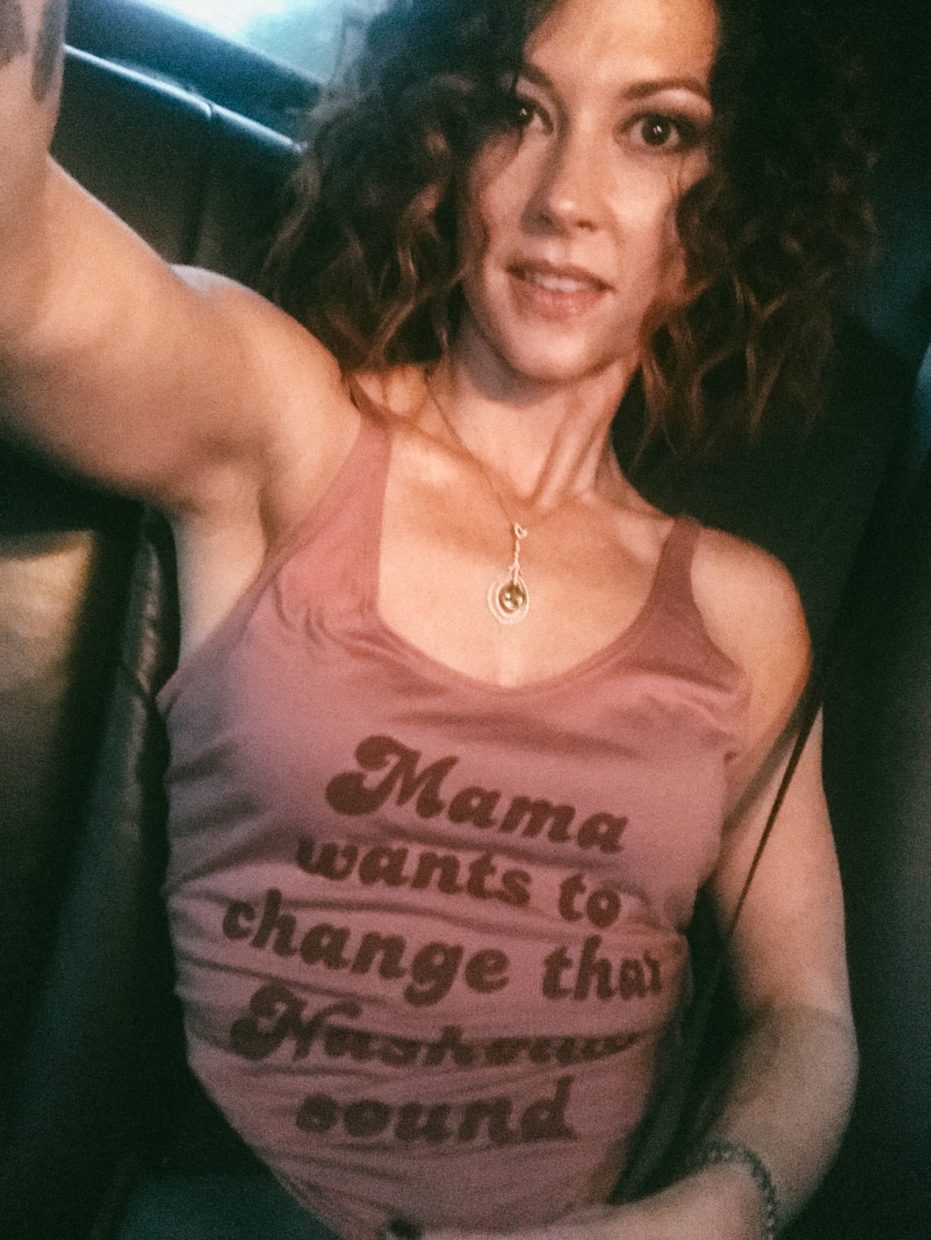
When you wore that tank, you were voicing a desired change for equality in a male-dominated genre. Do you think the lyric was also written with other country music minorities in mind?
I don’t know because I didn’t write it, but I do know that it applies to me, and that’s why I feel I can pirate that and take it to be mine because, whoever said it or wrote it first, Jason Isbell, that’s fine, but it is also like, “Oh cool. There’s a guy out there actually thinking about that, too.” It’s good to know there are more socially aware and empathetic persons out there than just those of us who are struggling.
I know that we can stand to see more diversity than just being a woman vs man struggle. I don’t even it’s like a versus — I think it’s just a thing that exists. I think if there was more education and more thoughtfulness in what was being played on the radio and not treating ladies like they’re a garnish or tomatoes on a salad, we could be getting a lot further. I feel like country music is behind the times in a lot of ways. Pop, rock, hip-hop … they play lots of ladies. Country? Behind. That’s not even talking about the musical part, which needs to change, too.
Country music subject matter is lame these days, too. That’s another soapbox, but part of the change we need. We can’t wear a tank top and skirt to an awards show while a guy wears a tee shirt and jeans? “Oh my God, someone call the E! Online!”
Do you feel your message was well received at the CMA Awards?
At the CMA Awards? I don’t know, but I know as far as fans of my work and people that are like-minded, it was well received. I don’t really hang out with industry folks, so who knows?
Why do you think E! chose to focus on the outfit being inappropriate and Rolling Stone chose to focus on the statement?
Because E! is base. Rolling Stone, I think Rolling Stone knows what time it is. E!’s not credible. No one thinks “Oh, I should listen to what they think of someone’s style opinions.”
You mentioned earlier about how the woman’s role in country music has changed a little, but is still stuck in 1957.
Yeah.
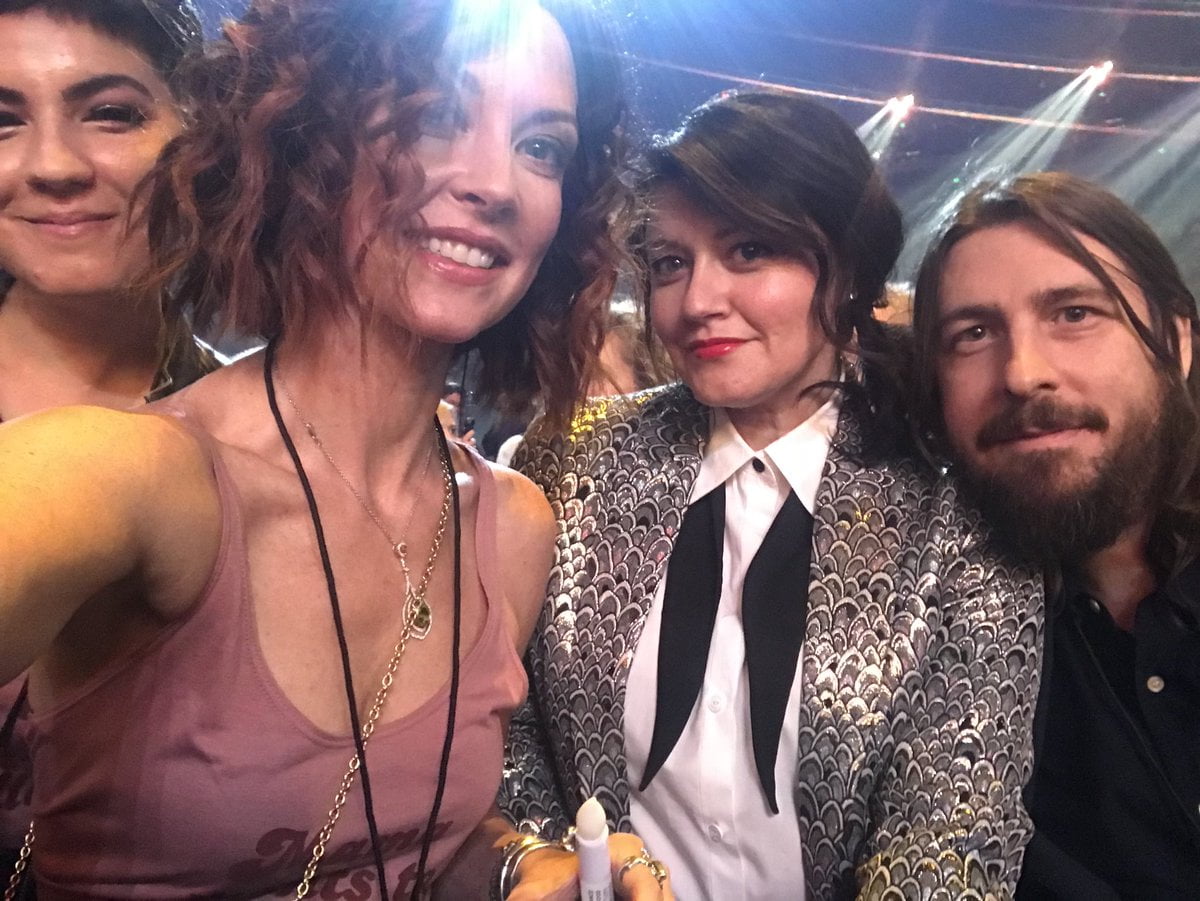
Kelly Garcia, Amanda Shires, Ledja Cobb, and Dave Cobb at the CMA Awards.
What do you think are the steps needed to progress a little bit (or a lot!) more here?
Women championing other women. So much in music is, “Oh, how do you explain it?” Say that there are 10 slots for you to make a top 10 record. They give one, if you’re lucky, to a female. And all the girls are fighting for this one spot, so naturally they’re sort of like, “Oh no, if this person gets it, that means I’m less than,” but it’s not that way. Everybody who makes something great is worthy of a spot. It’s just they don’t make enough spots.
I would say for every time they play that Keith Urban “Female” song, which this article is not about that, they should probably spin three-to-five female artists directly following, if that’s the message that they are trying to send. If Urban is really wanting to do something, he should probably really do it. I really hope folks aren’t treating this idea as a trend, and I really hope the ultimate goal isn’t to monetize this important shit. Because right now, to me, it feels a lot like, “Oh, this is a cool trend to follow. This is what they want. I’m gonna go cash in on that right now.”
Other steps would be to hire women engineers etc. I know a few engineers and women producers. I don’t know.
What role do you think listeners/fans have in raising awareness and affecting change?
Just have the conversation… They can call their radio stations and complain when women aren’t being played. They can count the songs and write down who sang them and have proof when questions are asked. They can also go support live lady artists. A lot of people claim that they don’t like a female voice. Well, it’s just they haven’t heard enough of them. Everybody likes fucking Joni Mitchell. Yeah call in, make things happen like that. Actually support live music because as hard as it is for a parent, a mother or father, to go out and see live music, pay to park the car, and buy dinner and all that, it’s the same amount of difficulty for a woman who is a performer with a child and all that kind of stuff.
I think to make a difference you have to be active and you have to actively participate within your community further than just messaging on social media. That’s not enough. You have to participate. You have to actively support and actively show up. You might get to bed an hour later, but you’re doing something. Anything you can do to support is good past being on a screen. I think that being in the moment and showing up with your physical self — body or whatever I don’t know — means more and it’s more noticeable.
